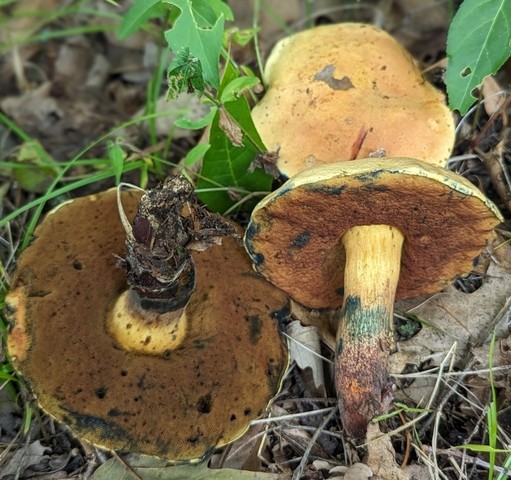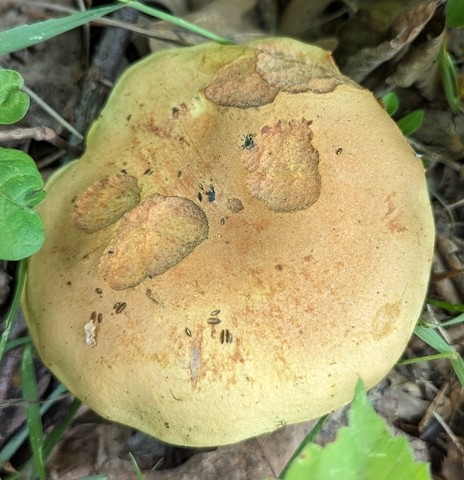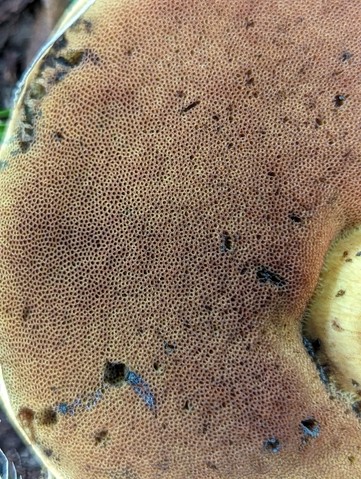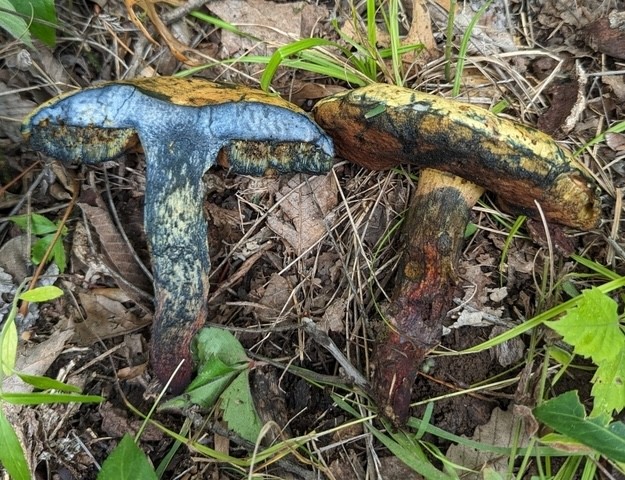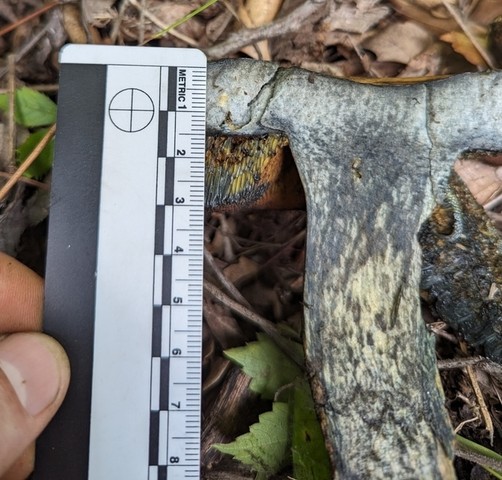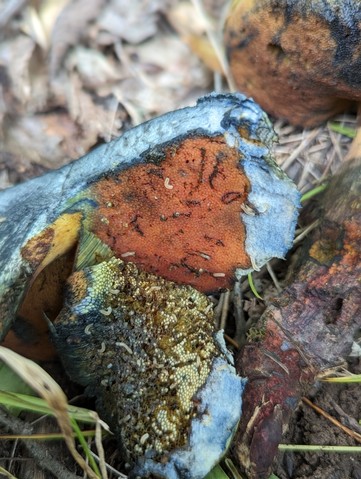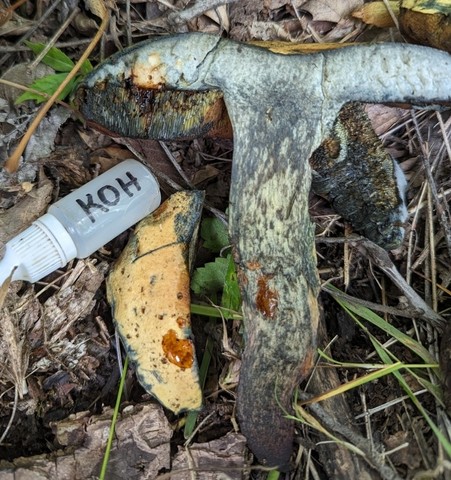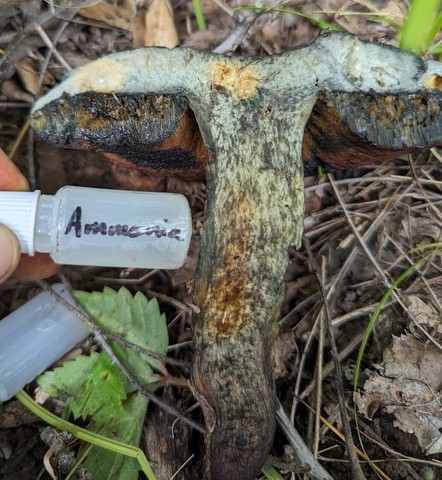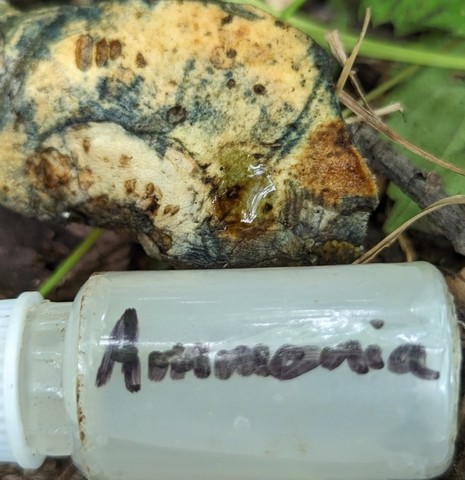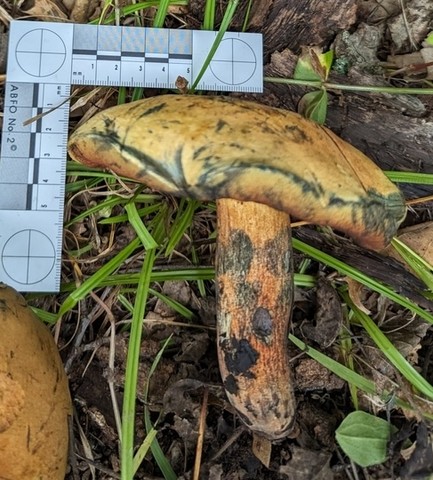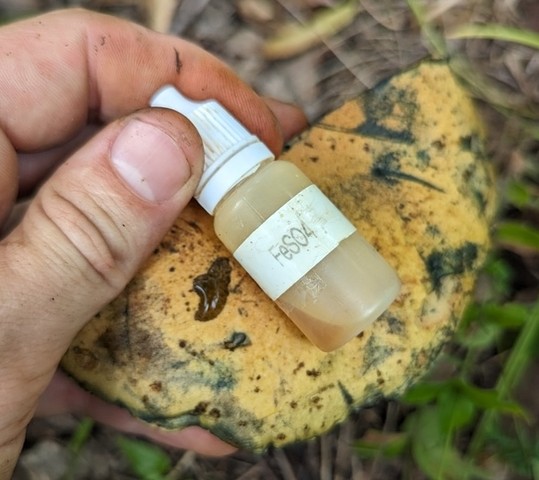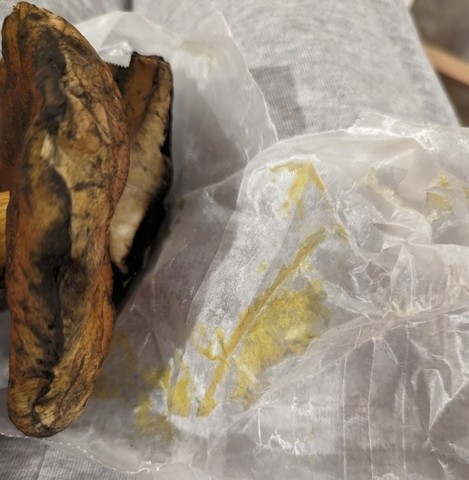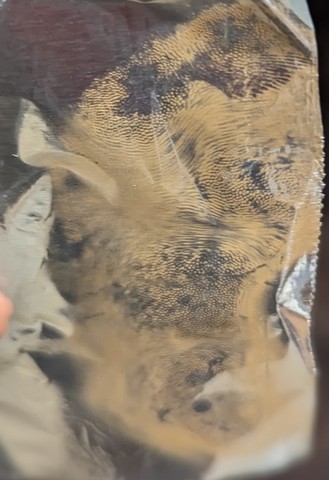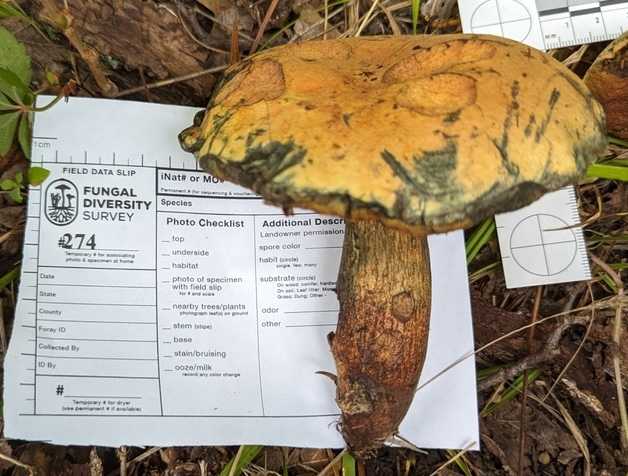American Lurid Bolete
Suillellus ameriluridus
Life > Fungi > Basidiomycota > Agaricomycotina > Agaricomycetes > Agaricomycetidae > Boletales > Boletaceae > Suillellus
Description
The American Lurid Bolete (Suillellus ameriluridus) is a mycorrhizal mushroom that is distributed east of the Rocky Mountains and associated with Oak trees. It can be found in the summer and fall. This mushroom is vividly colored and bruises blue where handled. Suillellus ameriluridus is a provisional name. It is awaiting final publication distinguishing the European Suillellus luridus from this species. More bolete news to come!
The word lurid gives credence to its absurd coloration.
Lurid (adjective): Vivid in a way that is intended to shock or be sensational, often by emphasizing details that are shocking, gruesome, or exaggerated (Merriam-Webster, 2025).
The stem is yellow/red and has a reddish fish net-like pattern (reticulation) easily bruising blue to the touch. It is generally more red towards the base of the tapering stem.
Stem Color:
Its pore color starts a dark red or orangish when young, transitioning into an orange to yellow color when mature. Quickly staining blue when cut.
Pore color:
S. ameriluridus promptly turns blue where cut, later transitioning to blackish.
Edibility for this species is currently considered iffy (Pavelle, 2015) and not advised by the authors of this webpage.
August 1st, 2023 Field Notes - Indian Cave State Park:
- Growing gregariously in open mixed oak woodland edge.
- Nearby Trees: Black Walnut, American Linden, Bur Oak, Northern Red Oak, Elm, Ash and Black Oak.
- Cap light orange, bald, slowly bruising dark blue where handled/damaged. Pileipellis color rubbing off on fingers and collection bag.
- Hymenium dingy orange, with large circular pores that quickly bruise dark blue where handled/damaged, sunken at stipe apex.
- Stipe light yellow at apex with numerous small reddish-brown scabers, turning wine red and subtomentose at base.
- Basal mycelium pale yellowish.
- Tube layer easily separable from orange trama.
- Outer flesh staining wax bags yellow.
- Smell: not distinctive
- Taste: not distinctive
- KOH: Dark orange on pileipellis, stipe flesh and tube layer, and pale orange on trama.
- Ammonia yellowish-green on pileipellis, pale orange on trama, yellowish on tube layer and stipe flesh.
- FeSO4 dark gray on pileipellis.
- Spore Print: light olive brown.
DNA Barcode ITS: GAACGCACCTTGCGCTCCTTGGTATTCCGAGGAGCATGCCTGTTTGAGTGTCATCGAATTCTCAACCATGTCTTGATCGATTTCGAGGCCATGGCTTGGAGTTGGGGGTTGCTGGCGGCGACGAGCCGTCGGCTCCCCTGAAATGCATTAGCGAAGGGCAGCAAGTCTCTCGACGTGCACGGCCTTCGACGTGATAATGATCGTCGTGGCTGGAGCGTTCGGACTGCATGAATGGTCCTGTGCTTCTAATGTCCCCCATCGCCTTATGGCGTGTGTTTCGAAACTTGACCTCAAATCAGGTAGGACTACCCGCTGAACTTAA
References
Kuo, M. (2015, January). Boletus luridus. Retrieved from the MushroomExpert.Com Web site: http://www.mushroomexpert.com/boletus_luridus.html
Merriam-Webster. (2025). Definition of Lurid. Merriam-Webster Dictionary; Merriam-Webster. https://www.merriam-webster.com/dictionary/lurid
Pavelle, S. (2015, July 24). Suillellus luridus. The Bolete Filter. https://boletes.wpamushroomclub.org/product/boletus-luridus/
Zeller, D. (2025, January). Nature Colors. Retrieved from beta site: https://naturecolors.netlify.app/
Created February 21, 2026 at 10:41 AM
